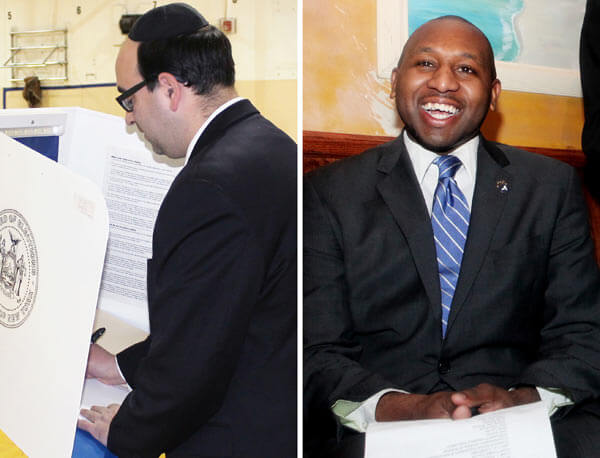By Rich Bockmann
In southeast Queens’ special election last month — the first race in the borough under new campaign finance disclosure rules — the 1199/SEIU reported spending more than $22,000 to send mass mailings to its members urging them to vote for Donovan Richards.
The new rules were the result of a 2010 ballot referendum in which 83 perecent of city voters approved requiring independent groups to disclose how much money they spend to influence an election.
Richards eked out a razor-thin victory and last week he and the City Council unanimously voted to override a mayoral veto on legislation passed in January excluding communications between unions and their members from the disclosure requirements.
“We have some stringent and strict rules,” Richards said. “Reporting every little detail, every little thing makes it harder for unions to communicate to their members. Sometimes [the] Campaign Finance [Board] makes it impossible to get the message out.”
In January, the Council passed a bill — co-sponsored by Councilmen Jimmy Van Bramer (D-Sunnyside), Ruben Wills (D-Jamaica) and James Gennaro (D-Fresh Meadows) — changing the definition of an independent expenditure to exclude, among other things, communications unions send to their members designed to influence elections.
Supporters of the bill said it helps organizations better communicate with their members.
“One of the major purposes of disclosure is informing voters who’s paying for the message. If you already express a desire to be part of the mailing list, then you know who’s paying for the message,” said Adam Skaggs, senior counsel for New York University Law School’s Brennan Center for Justice. “The interest [of the public at large] needs to be weighted against facilitating and encouraging political debate.”
In February Mayor Michael Bloomberg vetoed the bill.
“Just like other forms of campaign expenditure disclosure, disclosure of independent expenditures provides voters with the information they need to hold candidates and elected officials accountable for their positions and supporters,” he wrote. “[This bill] will only weaken the city’s strong campaign disclosure laws and I see no reason why unions and other organizations should not be held to the same standard as others who are supporting candidates for elective office.”
In February, Richards won his council seat by 80 votes in a race in which 1199/SEIU spent $22,581 to support him.
Campaign Finance Board Executive Director Amy Loprest said the results showed that “outside spending can have a clear impact on election results.”
“Disclosure helps voters understand who is speaking and trying to influence the outcome of the election,” she said. “Just as important, disclosure helps voters hold candidates accountable for their supporters during an election and for the policies they pursue.”
Reach reporter Rich Bockmann by e-mail at rbockmann@cnglocal.com or by phone at 718-260-4574.



































